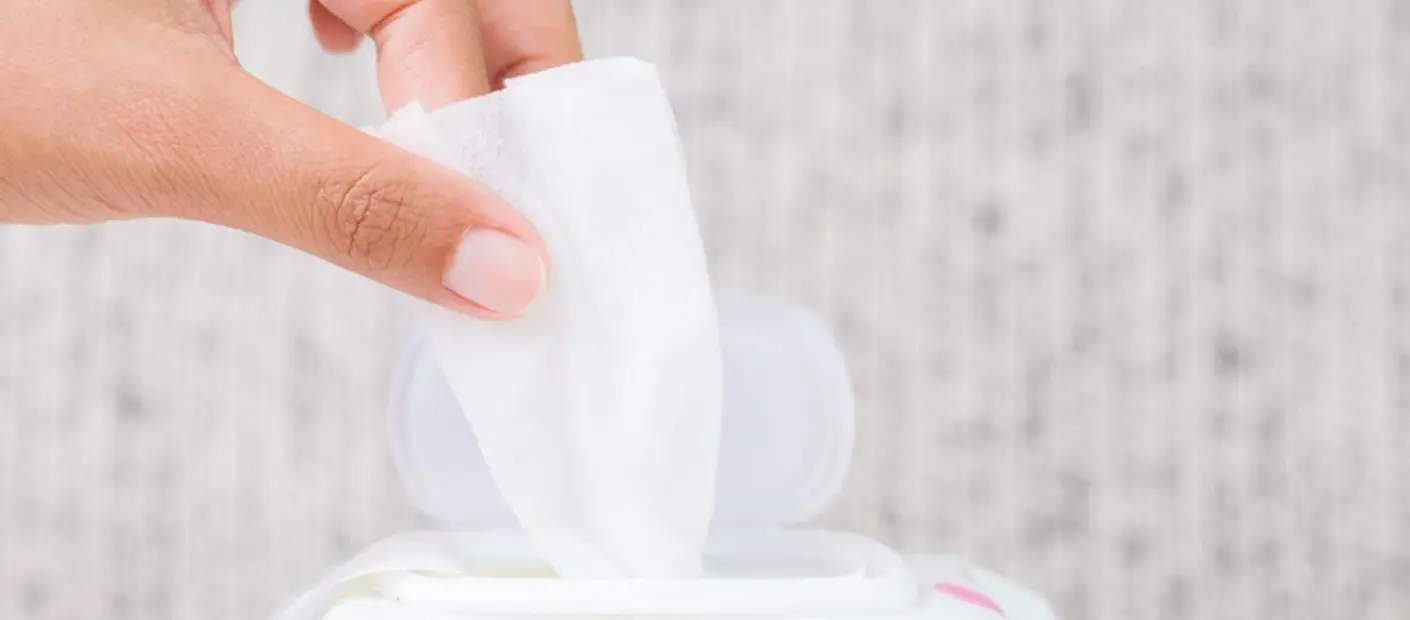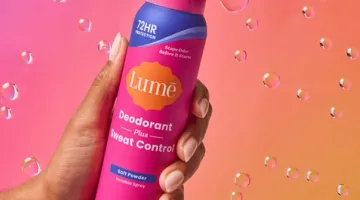
Why Deodorants and Other Products for “Vaginal Odor” are Ineffective (and Potentially Harmful)
by Ashley Cummings
You know what I don’t ever think about?
My monthly trip to the feminine products section of the nearest grocery store.
Buying tampons, pads, or even a pregnancy test is as normal to me as purchasing a watermelon in the summer or a pack of cards to take on vacation.
When I pick up tampons, I don’t hide them under other products out of embarrassment or find a female cashier to not cause male cashiers potential distress.
But I do feel the need to be discreet when casually strolling past the vaginal deodorants in the feminine hygiene section. Why is that? Why do I, and so many other women, opt for the self-checkout lane when purchasing these products? If needing these products is just a part of life, what is there to be ashamed of?
Maybe it has something to do with the stigma attached to the words “vaginal odor” and “feminine odor?”
Considering that perfume is a 31 billion dollar industry, it’s not a big leap to assume that women like to smell good. It makes sense that they would purchase products to conceal odor, especially if it’s for an odor near the private parts.
But, here’s the problem with products marketed as “vaginal” deodorants.
The phrases “vaginal odor” and “feminine odor” mostly serve as marketing ploys that capitalize on creating insecurities about the vagina. Companies urge women to buy products that, in most cases, they don't actually need simply because no one wants a "stinky vagina."
Here’s the truth.
The same type of chemical reaction that causes underarm odor also causes the odor found on private parts (for both men and women), under breasts, under tummy folds, and everywhere else on the body.
Vaginas are self-cleaning. The vagina is an internal organ and often confused as having an external presence. Day-to-day, odor down under is EXTERNAL and occurs on the vulva, which surrounds the vagina.
Bacteria from your backside and bodily fluids like menstrual blood, discharge, urine, semen, and sweat mingle to create odor. So, unless you have an internal bacterial infection which would require an antibiotic prescription, odor is—a vast majority of the time—NOT from your vagina. This is our battle cry!
What does this mean? It means that the product you’re looking for to fend off most odor down there should be able to be applied anywhere externally on your skin, and “vaginal odor” is a myth perpetuated by savvy marketers to sell products.
Let’s take a deeper look into some standard products that are marketed to destroy “vaginal odor,” why these products aren’t the best, and what you can use instead.
1. Douches
Did you know that douching made its first debut in the mid-19th century? The Éguisier irrigator, consisting of a plunger and a nozzle, made its way into French pharmacies. Women went nuts for it, as it promised to treat intimate odor.
The momentum for douche popularity continued through the 1920s when Lysol (Yes, the Lysol that you’re thinking of!) became the most popular douching product. Yikes! These Lysol douching products claimed to work as a hygienic antiseptic and spermicide to use after sex. Again, YIKES!
Fast forward to the 1980s, when health experts realized these Lysol douching products containing cresol caused permanent damage to a woman’s cervix and labia.
While doctors and health professionals have, thankfully, wised up about Lysol douching treatments, it’s no secret that douching is still prevalent. In fact, you can walk into your local CVS and purchase a portable system for one dollar.
But, here’s the thing. Doctors know so much more about vaginal health than they did in the early 1900s, including that douching isn’t healthy. The American College of Obstetrics and Gynecology recommends that women don’t use douching products at all.
Why? Your vagina is designed to maintain a healthy and natural pH balance. The naturally-occurring vaginal flora stops most infection, prevents irritation, and manages chemical reactions that may cause odor.
When you use any kind of douche (even a fancy one), you’re actually killing healthy bacteria, allowing problematic bacteria to grow. This contributes to bacterial vaginosis and likely the “fishy” odor associated with it! So, douching can actually create the same odor most ladies are trying to avoid in the first place.
Douching is old-school, unproven to work, and even dangerous.
You certainly wouldn’t rely on the Pony Express to deliver your mail or call your bestie on a rotary phone, so why would you stick to other old-school practices like douching, especially when your lovely vagina is involved?
2. Vaginal Gels
Even if you haven’t used a vaginal gel, you’ve undoubtedly seen them when purchasing feminine products.
These products are acidified gels that you place into your vagina with a plunger. The problem with using these gels as a “daily vaginal odor” treatment is two-fold.
First, these gels aren’t immune to the laws of gravity. In other words, if you put it up into your vagina, then it will come out and make a mess of your underwear. No one wants to deal with a messy product between their legs all day long.
The second problem with using these vaginal gels as a daily solution to odor is that they don’t even treat the cause of odor.
The source of everyday odor isn’t inside the vagina. So, once again, it doesn’t make sense to use a product that you have to put into your vagina as a deodorant.
Vaginal gels should only be used if your doctor recommends them along with oral antibiotics as a bacterial vaginosis (BV) treatment.
3. Vaginal Suppositories
Vaginal suppositories are fragrance melts you put into your vagina. But let’s stop right there. Allow me to scream into the void for a second.
AHHHHHHHHH!
Ok, back to business. Remember that the vagina is a self-cleaning organ that regulates smells all by itself?
This means that, if you have smelly vaginal discharge, you shouldn’t be turning to a fragrant vaginal suppository to try and cover it up. You should contact your gynecologist.
If you’re using a vaginal suppository as a daily “vaginal deodorant,” you’re causing more harm than good. Here’s why: These suppositories have a very high pH. When you use them, it throws off the natural pH of your vagina and inhibits the work the vagina already does for you.
They also have an overpowering fragrant smell but don’t do anything to treat harmful bacteria. This means that, if you do have an infection, you’re just adding a fragrance to an odor. It won’t solve any of your vaginal health problems.
4. Feminine Deodorant Spray
Feminine deodorant sprays have been rising in popularity the past few years. However, you have to be extremely careful and selective when it comes to feminine deodorant spray, as most of them are not up to par.
Many feminine deodorant sprays you can buy at the drug store have strong chemicals and fragrances that can be harmful to the vaginal area. Avoid these products at all costs.
At risk of sounding like a broken record, the vagina is not the cause of odor. Bacteria—no matter where it is on the body—cause odor. Lume Deodorant For Pits, Privates & Beyond will treat odor in your pits, on your privates, and any other part of your body where you wish to remove odor.
5. Body Wipes and Washes
Body wipes and washes can be good products for cleaning your body. If you have excess sweat, blood, or daily grime you need to clean, then the right body wipes and washes are an excellent solution.
Lume Deodorant Wipes can help you clean your body from bacteria that cause odor, especially when you’re on your period and your body needs a little extra love and attention. They are more than just another wet wipe, they are clinically proven to control odor for 24 hours.
On skin as sensitive as the vulva, you want to use an odor control wash or
gentle, sulfate-free soap that doesn’t have harsh fragrances. And remember, there is no reason to ever use soap inside your vagina. Let it clean itself while you clean the external, surrounding area.
When your body is clean, it smells fresh. Washing removes odor, but doesn’t prevent it from forming. For that you need a deodorant, not just a wash.
Opt for Lume Deodorant instead!
Smelling good is incredible. But, there is a wrong and a right way when it comes to picking out a deodorant, especially if you’re looking to keep the area in between your legs fresh.
Instead of using products that are irritating or don’t actually resolve the cause of odor below the belt, opt for a whole-body, natural deodorant that treats all bodily odor. Remember, if you have a strong smell in your vagina, it could be indicative of a health problem. But if you are looking for a treatment of naturally-occurring body odors, then look for a skin-safe, daily solution like Lume Deodorant.
Lume Deodorant is a product with skin loving ingredients that you can apply anywhere externally on your body, including the vulvar area. Lume also provides 72 hours of clinically proven odor control. It keeps your skin smelling fresh longer than simply using soap and water and doesn’t serve as a mere cover up for odor.
Lume is gynecologist developed, dermatologist approved, and is even recommended for the most sensitive skin. Lume is also free of baking soda and parabens.
Lume really makes hygiene so easy. Say goodbye to odor all over with Lume.
Categories
Recent Articles
- Meet Our New Clinical Strength Antiperspirant Spray
2026-02-05T21:00:00.000Z
- The Art of Scent Layering With Lume
2025-09-24T20:51:28.831Z
- Your Pits Deserve Better: Why Lume is The Best Deodorant For Underarms
2025-08-08T14:01:16.861Z
- Bacteria On Our Skin: Friend Or Foe?
2025-07-17T19:53:50.363Z
- Why Lume's Premium Ingredients Deliver Quality & Real Value
2025-06-20T15:57:17.551Z









